
The Synbio Apprenticeship
The Synbio Apprenticeship
Octant launched our SynBio Apprenticeship this fall, and after two months of intensive training, we thought we’d check in on the program. Below is an interview with three of our apprentices, Johnny, Morgan, and Neslly:
How would you describe the SynBio Apprenticeship?
Johnny: The SynBio Apprenticeship is a program for recent undergraduates who are looking to explore synthetic biology before they transition to graduate school (or perhaps stay with Octant!). Synthetic biology is a rapidly growing field. The apprenticeship enables anybody interested in graduate studies or the biotech industry to dive deep into the field quickly. We get to see first-hand how a well-backed synthetic biology startup operates and learn from driven people along the way.
Morgan: The word "apprentice" really captures the experience. Every day, I get to learn a multitude of "trades" from scientists at the top of their field. It's a program tailored towards new grads who maybe want a gap year before grad school, or maybe they love science but just don't know exactly what path they want to take yet (that's me)! Regardless, it's a year of intense growth in knowledge, both in the science realm and the business/operations side which you're fortunately exposed to in a start-up.
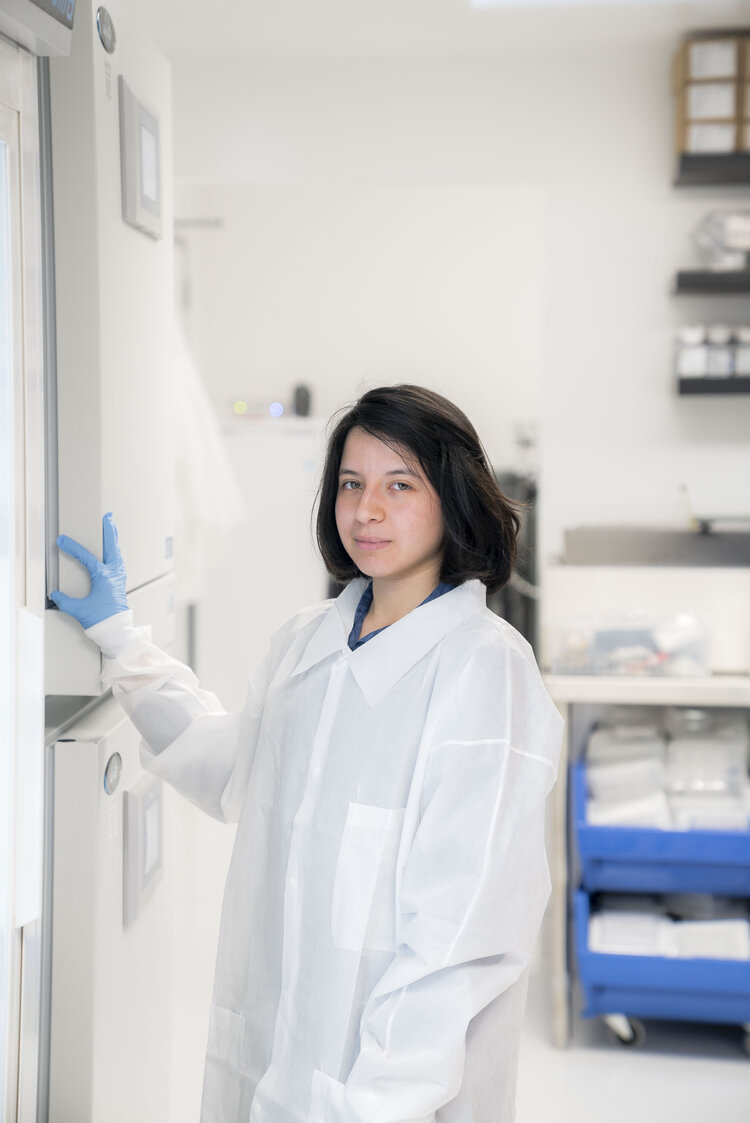
Why did you apply?
Neslly: I wanted to investigate how synthetic biology can be a powerful tool for drug discovery and see what the start-up culture was like. I believe the pharmaceutical industry is prone to making decisions based on profit rather than morality, so I was hoping a start-up would not be as corrupted. Octant is still a place where people are focused on helping others and sharing scientific knowledge. It is tough to believe that it can handle this attitude while working towards a business, but I really admire it. In addition, the SBA program is perfectly balanced at the interface of academia/industry, giving me challenging problems while providing a team-oriented environment where I feel my input is valued. Regardless of your position at Octant, you have incredible power over what you learn, and your everyday work contributes to a bigger goal.
Morgan: I wanted startup experience, but also to contribute to new technologies that can change drug discovery, potentially influencing millions of lives. That’s why I got into science in the first place: to make an impact. I had another opportunity as an RA at a biotech company focused on developing therapeutics for protein misfolding diseases but most other RA positions seemed to lack requests for critical thinking, which made me apprehensive. The apprenticeship program at Octant was much more appealing because it was built around engaging with the scientists.
Johnny: Three months before graduation, I was preparing to go to the Keck School of Medicine of USC. My Bruin instincts whispered that disobeying my dad and working at a startup for a year would be amazing, but I didn’t want to be just a lab hand. The SynBio Apprenticeship presented value beyond the pipette; I wanted to participate in the science and learn professional skills from talented people so I decided to apply.
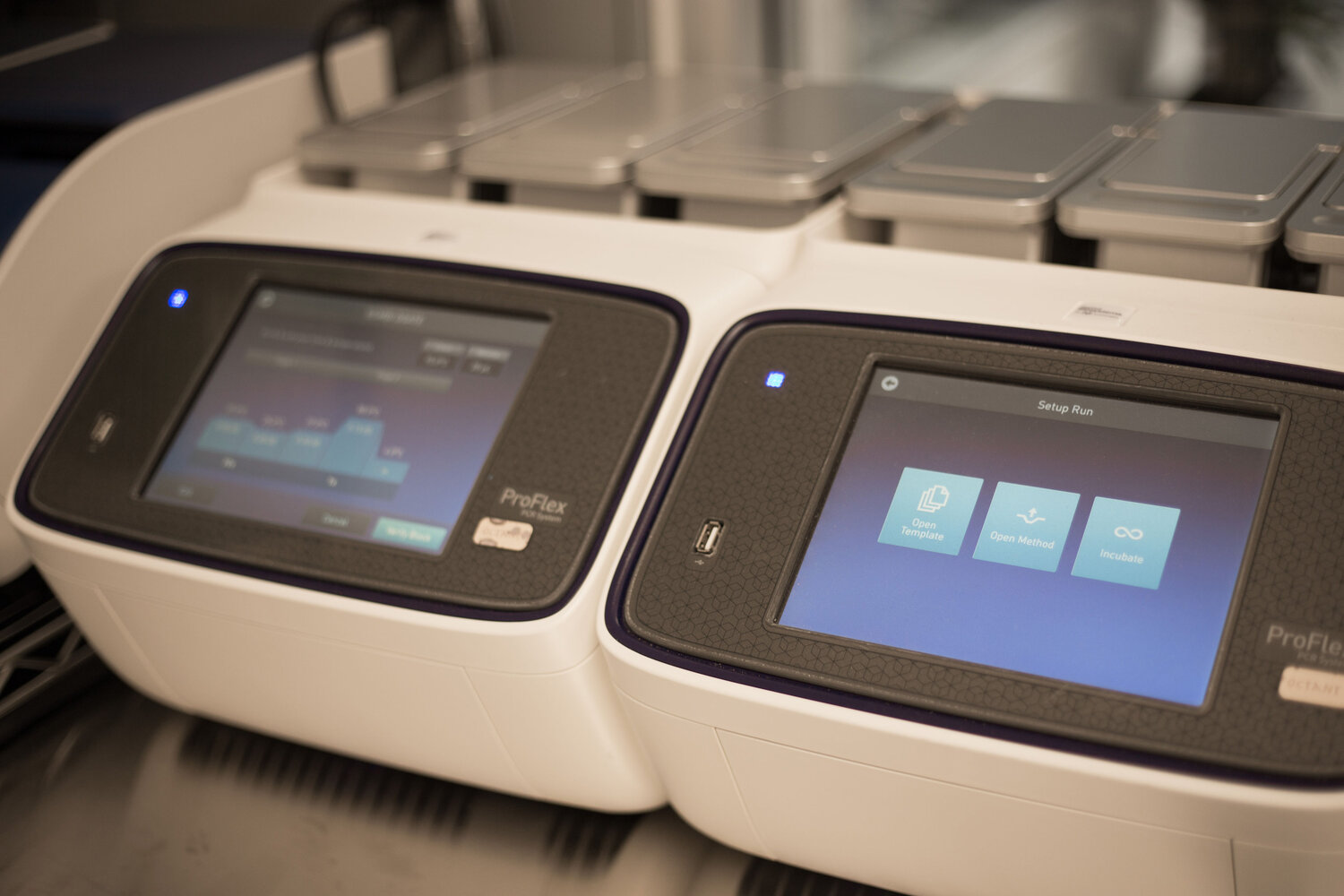
What’s Octant like? What’s the apprenticeship like?
Johnny: It’s like a farm. It's honest work, the people enjoy being with the animals (cells), and we have kombucha in the fridge. In all seriousness, we are die-hard scientists. In a good biotech startup, there are a lot of big ideas, but not enough hands to carry them out. It's hard to see the light at the end of the tunnel sometimes when I'm hungry and I'm stuck in cell culture freezing down towers of cell lines. But, through it all, my fellow Octonauts are there with me. We clone plasmids for each other, cover cell lines on people on their sick days, and tag-team during cell plating days so that we can do necessary snack runs.
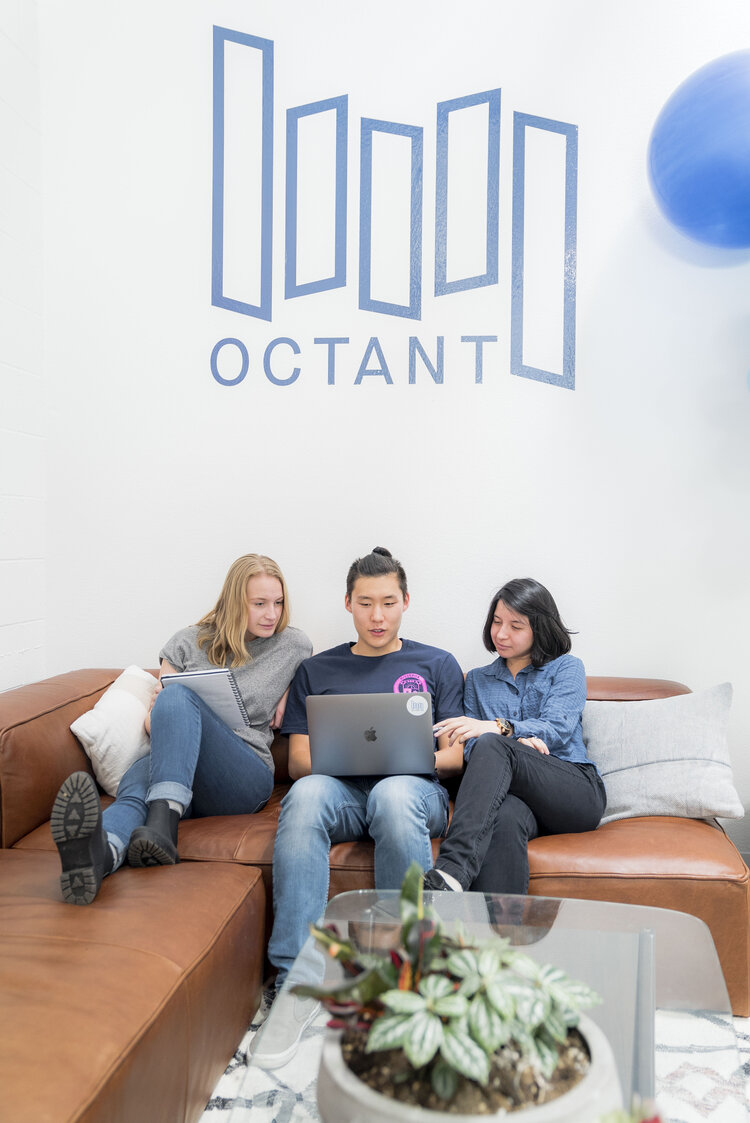
Morgan: We get to explore big ideas, take risks, and challenge each other to improve or create technology that has the potential to help many people. It's a very inspiring environment and everyone is extremely supportive of one another. Collaboration is valued and scientists are often bouncing ideas off one another to progress the work and our knowledge. Octant is really fun too- friendly competitions, bonding activities, and constant banter.
Neslly: Octant is a place to learn about up-and-coming science, discuss complicated papers, design experiments, and gather data- if you’re into science, Octant will encourage and cultivate that spirit! The small environment fosters a close-knit community, where our discussions can shift from talking about MAVEs to food reviews of Emeryville restaurants. And being part of the apprenticeship quicken my transition into Octant. The other apprentices are wonderful! I'm definitely a lot shyer and quieter than the others, but they were really patient and very welcoming when we worked together. The apprenticeship is always engaging you and reminding you of our ultimate mission to revolutionize drug discovery, embedding me with confidence and accountability over my place in the company. By the end of the first month, I felt more confident on how to be useful, and I feel more power over what I am doing to help my team.
It’s only been 2 months. What have you learned so far?
Johnny: The first month of training was intense. We did hundreds of minipreps to generate and freeze-down all our cell lines. Despite annoyances like losing a few days to troubleshoot straggling plasmids, we got to present loads of data, received critical feedback from the scientists, and maybe even changed the direction of the company a little. We’ve also had a weekly journal club that catches us up on the science behind Octant's multiplexed platform. After the first month of training, we were assigned to project teams. It’s fast-paced, but I feel equipped to tackle many of the projects. Since starting, I’ve constructed new reporter updates, implemented a second plasmid integration system, and learned to optimize bacterial cell growth for receptor minipreps.
Morgan: A TON of cloning techniques-Gibson, Golden Gate, etc. Things didn't always go the way we planned and we had to redo a lot of our assemblies, which could get frustrating. There were also times when we were exhausted from the number of T225s we had to split, spending whole days in the tissue culture hood. But it was an invaluable experience that has definitely paid off already. Although difficult, troubleshooting fragment assemblies has taught me so much in just a few weeks. Running into issues and having to solve them is the best way to learn. The scientists share their wisdom from years of their own experiences doing similar assemblies. They’re so willing to help and share what's worked for them in the past. I’ve also really enjoyed the insight into how start-ups actually operate. Where the money comes from, hiring techniques, ordering supplies, etc. I’ve even learned to code, thanks to a crash-course in R from one of my fellow apprentices.
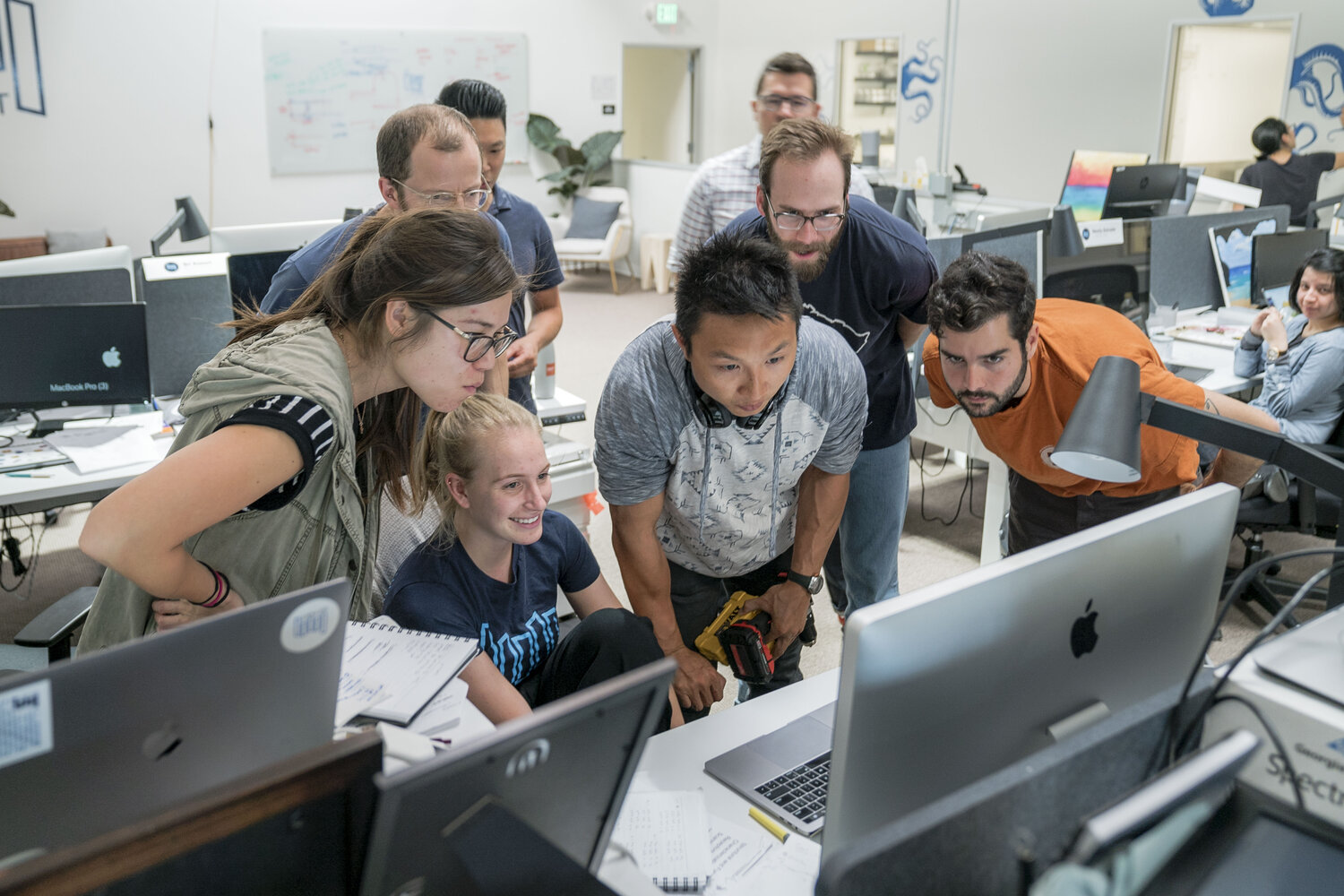
Neslly: As my first industry experience, I was introduced to a new but necessary mindset. I'm learning to prioritize science that is applicable and significant rather than just an interesting phenomenon. I have gotten better at finding the protocols and data in all of Octant's platforms, like drive, dropbox, notion, and slack; and, more importantly, I am becoming a better researcher in terms of knowing which experimental designs produce informative results. I also get to participate in my team's weekly scientific strategy meetings by reporting and discussing about my experiments' results. Along with all the scientific skills, I am learning to recruit and interview potential colleagues, and to keep our lab stocked so we don’t run short on supplies.
What has been most fun about the program so far?
Johnny: We’ve had several social events: pizza and paloma night, barbecues, happy-hours. We also had a movie night with the apprentices. But mostly, I’ve enjoyed spending quality time with people. I’ve had personal one-on-ones with every person in the company (scientists, co-founders, managers, etc.) and the development workshops add an extra dimension to the experience (interviewing, recruiting, giving feedback, etc.). On top of all that, the other apprentices have been fantastic. We all have our own quirks and areas of expertise which makes tackling difficult projects much more approachable and fun. For our next SBA trip, we're planning to teach Neslly how to ride a bike, then do a bike tour in San Francisco, and watch Parasite at the Alamo Drafthouse.
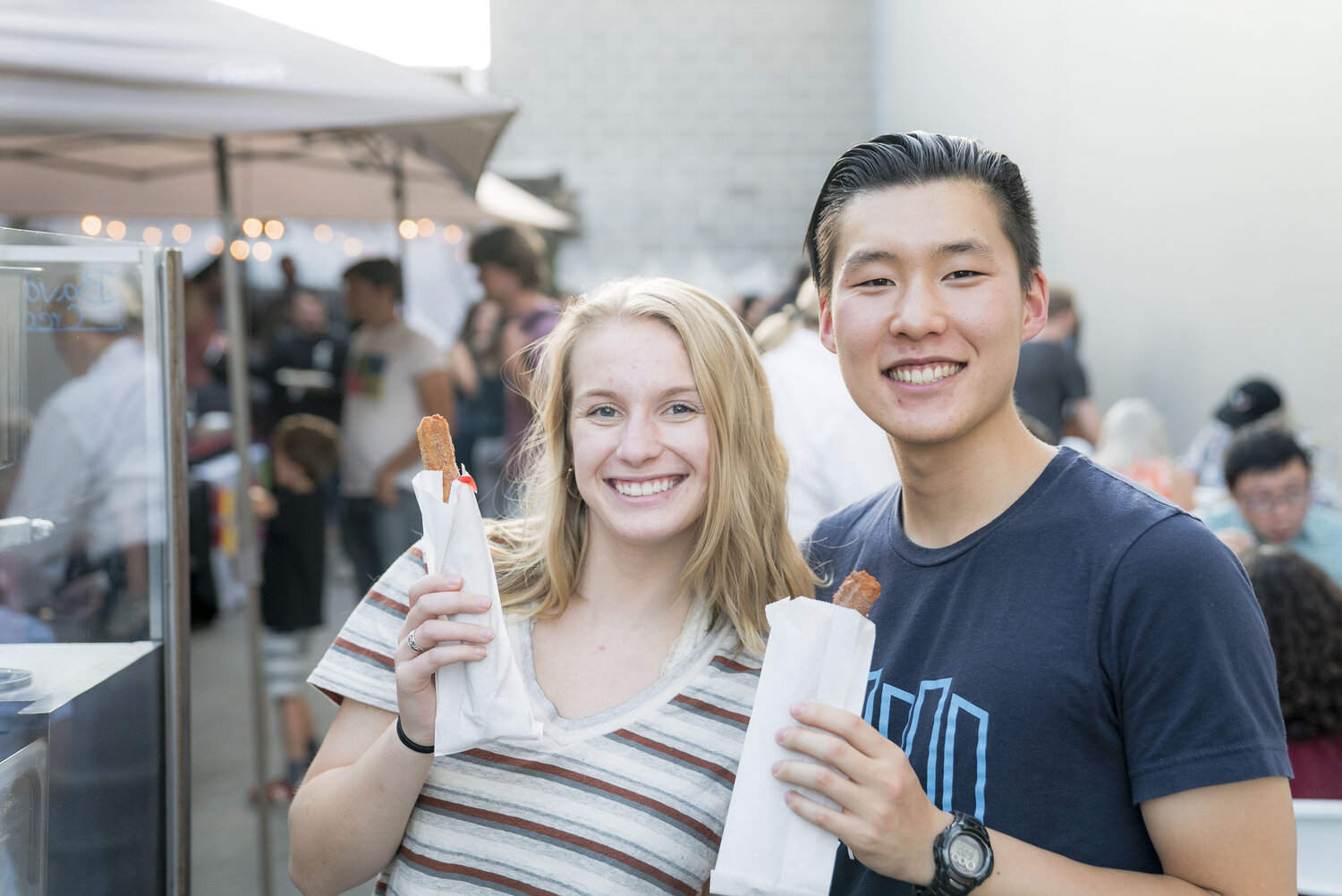
Would you recommend the SynBio Apprentice program to a friend?
Neslly: Definitely! I would recommend it to graduates that want to challenge their scientific skills. Because while I know what Octant's goal is, it is still a foggy road to reach that goal, so every day is one full of questions on whether our experiments are geared to reach our mission. In addition, an amazing aspect of the program is that you get your very own mentor, so if you’re somebody that thrives in a 1:1 environment, you’ll find benefit from this program.
Morgan: Absolutely! I would recommend it to anyone who wants to explore industry (and more specifically, a start-up), before either continuing with graduate school or just deciding what you want to do next. If you care about what kind of work you do and you want to make an impact while being exposed to incredible talent, science, and technology, Octant is the place for you.

Posted by

Johnny

Morgan

Neslly

